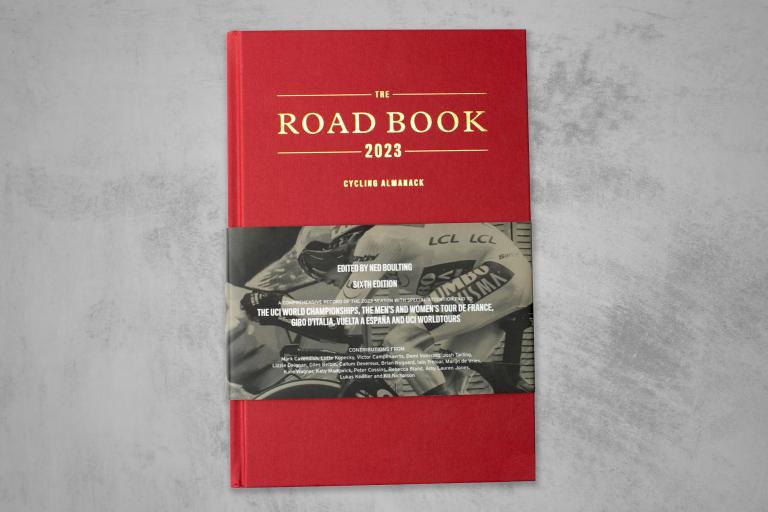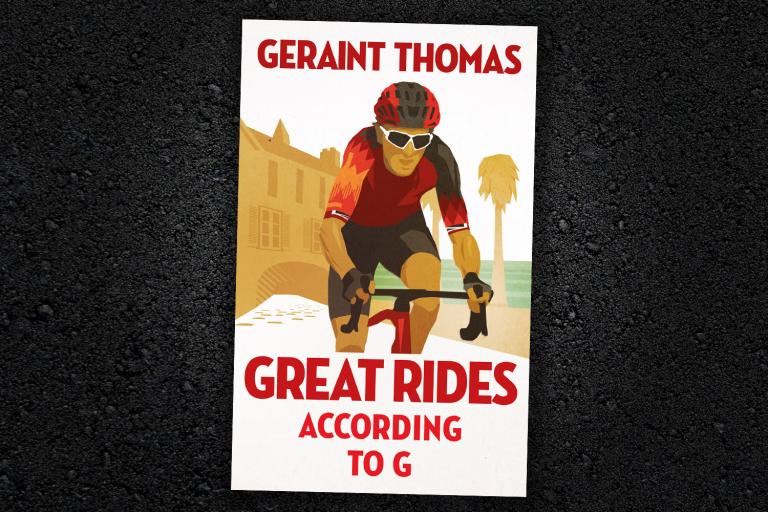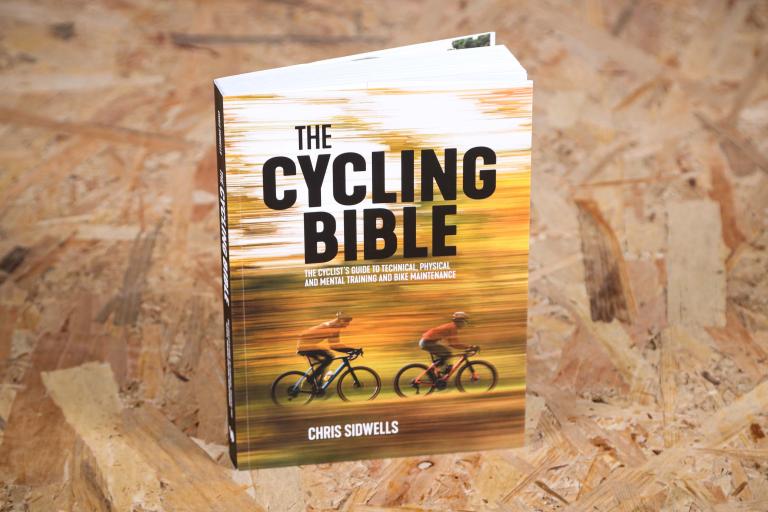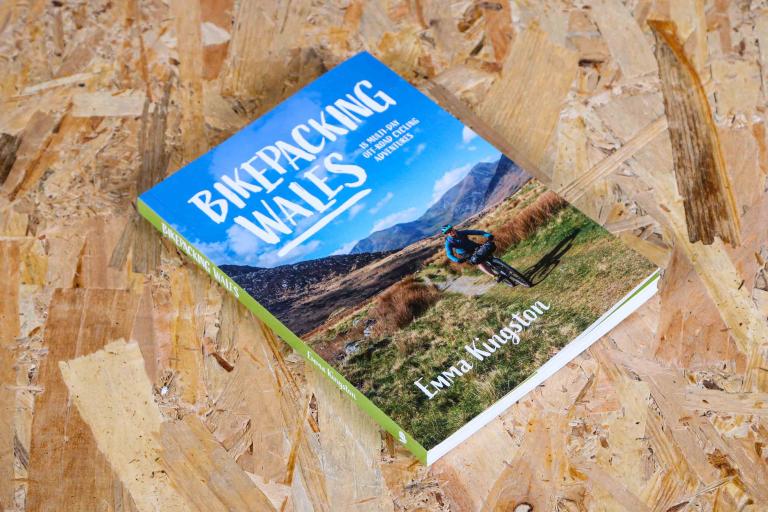- News
- Reviews
- Bikes
- Accessories
- Accessories - misc
- Computer mounts
- Bags
- Bar ends
- Bike bags & cases
- Bottle cages
- Bottles
- Cameras
- Car racks
- Child seats
- Computers
- Glasses
- GPS units
- Helmets
- Lights - front
- Lights - rear
- Lights - sets
- Locks
- Mirrors
- Mudguards
- Racks
- Pumps & CO2 inflators
- Puncture kits
- Reflectives
- Smart watches
- Stands and racks
- Trailers
- Clothing
- Components
- Bar tape & grips
- Bottom brackets
- Brake & gear cables
- Brake & STI levers
- Brake pads & spares
- Brakes
- Cassettes & freewheels
- Chains
- Chainsets & chainrings
- Derailleurs - front
- Derailleurs - rear
- Forks
- Gear levers & shifters
- Groupsets
- Handlebars & extensions
- Headsets
- Hubs
- Inner tubes
- Pedals
- Quick releases & skewers
- Saddles
- Seatposts
- Stems
- Wheels
- Tyres
- Health, fitness and nutrition
- Tools and workshop
- Miscellaneous
- Buyers Guides
- Features
- Forum
- Recommends
- Podcast
review
 2024 The Maurice Burton Way Britain’s first Black Cycling Champion - 1.jpg
2024 The Maurice Burton Way Britain’s first Black Cycling Champion - 1.jpg£20.00
VERDICT:
Well-told account of a racing career with a difference
Good account of a worthwhile racing career
Highlights racism issues – again
Not enough about his post-racing life
Limited images, all monochrome
Weight:
450g
Contact:
At road.cc every product is thoroughly tested for as long as it takes to get a proper insight into how well it works. Our reviewers are experienced cyclists that we trust to be objective. While we strive to ensure that opinions expressed are backed up by facts, reviews are by their nature an informed opinion, not a definitive verdict. We don't intentionally try to break anything (except locks) but we do try to look for weak points in any design. The overall score is not just an average of the other scores: it reflects both a product's function and value – with value determined by how a product compares with items of similar spec, quality, and price.
What the road.cc scores meanGood scores are more common than bad, because fortunately good products are more common than bad.
- Exceptional
- Excellent
- Very Good
- Good
- Quite good
- Average
- Not so good
- Poor
- Bad
- Appalling
Maurice Burton's biography confirms how hard it was for anyone to make a living from racing in the 70s and 80s – and doubly so if you were black. The Maurice Burton Way gives a good account of the challenges that he faced, and the extra difficulties that arose from racism.
Burton was a good enough cyclist to succeed as a pro, and his career provides ample material to produce a decent biography. However, no matter how good the story, it needs to be told well – which is where Paul Jones comes in. We have encountered Jones before, in two interesting if rather niche books: A Corinthian Endeavour about hill climbs, and End to End, about LEJOG records – and he does another fine job here.
Burton's skin colour was an obvious point of difference from most of his fellow racers, and the difference that made to his career provides an extra dimension to his biography. This is a topic that has been covered pretty thoroughly in the book Black Champions in Cycling – and not surprisingly Burton features within it, so inevitably there is some overlap between the two.
It's notable that Burton doesn't really complain about any discrimination against him, but instead focuses on how he overcame such barriers; he doesn't want his career to be defined by racism, and for that narrative to eclipse his impressive results. I get the sense that as Jones gets to hear more about what Burton experienced, he becomes more wound up about prejudice than Burton himself!
© Paul Jones
Jones does a good job of mixing his own recent interviews with articles about Burton from over the years, and there is a bibliography if you want to seek out the originals. It soon becomes apparent that not only does Burton have plenty of stories to tell, he likes to talk. Surely the ideal interviewee?
Burton's main focus was on track cycling, and to better realise his potential (and receive sufficient reward) he competed a lot in Belgium – where he was 'a man of colour in a country where it held a novelty value and a fascination. Maurice was a visible representation of what was repressed: Belgium's simmering colonial past and racial identity'.
© Maurice Burton
I enjoyed the story of the time when he was riding for victory against Eddy Merckx in a 'six day' race, and Merckx asked Burton to let him win the next round: 'Eddy Merckx came to me and he asked me, ME, the little boy from Catford ... It was a great honour.' He was obviously doing something right to have earned that respect.
Sadly, the use of drugs is still a subject that overshadows many pro careers, and I wondered if Jones would approach the subject; it is actually Burton who raises it, and it was definitely the most awkward of all their interviews. Burton reveals that he was once suspended following a positive test (for something called Stimul), and there is a bit of negotiation as to whether it should be included in the book. Burton even wonders 'if you knew whether you would have done this book in the first place. It's something I'm ashamed of, to this day, I guess'.
> 42 of the best cycling books – check out the books every cyclist should own
I can see why Burton would be worried about the effect that this revelation might have on his reputation, but knowing about the part that drugs played in cycling at the time I doubt that it will come as a surprise to many people. Increasingly, there are others who have admitted to past drug use, so he isn't setting any precedent here. Now that the truth is out, people can make their own judgements. Personally, I would have been more disappointed if the issue hadn't been covered, and everyone tried to pretend that such things didn't happen.
The Maurice Burton Way is primarily about Burton's racing career, so his life since 1984 (when he stopped racing professionally) is condensed into little more than a chapter. He soon became the proprietor of the well-respected De Ver Cycles, and I would like to have heard more about his business career which has, after all, lasted for almost 40 years – there have got to be some great stories to tell there.
© Juan Trujillo Andrades
Don't expect too much from the pictures, either – they are not plentiful, nor in colour (with one exception), nor of high resolution. I suspect that is largely down to the limited choice from the pre-digital era.
If you want your copy of the book to be signed, not surprisingly De Ver Cycles has them; if you want the complete experience, you could even cycle there along London's CS7 route, which is also informally known as The Maurice Burton Way – and which led to the title of the book.
Given 'the unique nature of Maurice's experiences as a Black man in an overwhelmingly White sport', Jones felt that he had a big responsibility in writing the book, something he has tried to do 'with integrity and diligence'. I reckon he has done a good job of striking a sensible balance between telling the interesting story of a successful pro, but also referencing enough of the racism issues to give context, without that becoming the sole focus.
Verdict
Well-told account of a racing career with a difference
road.cc test report
Make and model: The Maurice Burton Way, Britain's first Black Cycling Champion
Size tested: Hardback
Tell us what the product is for and who it's aimed at. What do the manufacturers say about it? How does that compare to your own feelings about it?
From the publisher:
"Maurice Burton rose above racism in British society and sport to triumph over adversity. This is the long-awaited, authorised biography of a ground-breaking British cyclist.
On a still summer's evening at Leicester's Saffron Lane Velodrome in June 1974, Maurice Burton defeated an elite field to become Britain's first ever Black cycling champion. For his father, it was a moment of intense pride; Rennal arrived in 1948 from Jamaica and made his home in South London. As his 18-year-old son climbed onto the podium, boos rang out around the stadium.
The crowd's response that day was typical of the racism and exclusion experienced by Burton. After being overlooked for Olympic selection despite beating those selected, he moved to Belgium to race professionally on the 'six-day' circuit across the continent, becoming the first Black six-day rider for over 75 years.
This authorised biography traces Maurice's experiences as the child of a Windrush-generation father and an English mother growing up in London, before moving across to Europe and his eventual return to South London in 1984, where he became a successful business owner and community leader. It rightly places Maurice Burton at the forefront of the British sporting narrative as a pioneer in our collective cultural history."
Tell us some more about the technical aspects of the product?
Title: The Maurice Burton Way
Author: Maurice Burton & Paul Jones
Publisher: Bloomsbury
Date: 24/3/24
Format: Hardback
Pages: 264
ISBN: 9781399407397
Price: £20
Tell us what you particularly liked about the product
It's a good, balanced, real-life account of a successful racing career achieved in the face of adversity.
Tell us what you particularly disliked about the product
It isn't a full-life biography, and the images are a weak point.
Did you enjoy using the product? Yes
Would you consider buying the product? Yes
Would you recommend the product to a friend? Yes
Use this box to explain your overall score
Burton's career provides plenty of interest, and Jones conveys it well. The racism that Burton experienced is part of the story, but it doesn't dominate the narrative. Images are a weak point, and the last 40 years are given scant coverage, but it's a good read nevertheless.
About the tester
Age: 60
I usually ride: My best bike is:
I've been riding for: Over 20 years I ride: Most days I would class myself as: Expert
I regularly do the following types of riding: touring, club rides, sportives, general fitness riding,
Latest Comments
- Fursty Ferret 0 sec ago
You'd think that a country that was formed on the basis of massively disproportionate punishments inflicted on vulnerable members of society would...
- stonojnr 23 min 31 sec ago
but I thought that was the Avanti process, your bike doesnt get in the special cycle storage carriage without a printed reservation, that you then...
- stonojnr 51 min 35 sec ago
he could get one of those flame thrower dog robots, might concentrate the minds of the drivers abit, the speed detector signs that article talks...
- stonojnr 1 hour 9 min ago
we could get Mr Loophole to take the case....
- grOg 8 hours 47 min ago
As soon as I saw the video, I thought; unlicensed rider, stolen bike with stolen plates; that sort of criminal wouldn't give a second thought about...
- NOtotheEU 10 hours 22 min ago
I recieved an email this week from a WMP officer drafted in to help as they were overwhelmed with submissions and falling behind. It said two of...
- quadtodd 13 hours 33 sec ago
You might have missed this: ...
- michael.macklin@va.gov 16 hours 22 min ago
Calipers: not apealing.Red Levers: The Most Beatiful Levers In The World ! Gonna work some overtime.
- Saxtoo 17 hours 2 min ago
Suvi is getting paid way too much. Needs a wages review. And quick....










Add new comment
2 comments
A God of British Cycling ... his time after racing would be a good second book... top man ...
I do hope Jones doesn't do the " outrage on your behalf" thing .....
The UK has had a few black cycling champions. Not long after Maurice was gaining recognition on the track, Charlie Reynolds, also from South London, was winning BMX races and went on to become world champion.